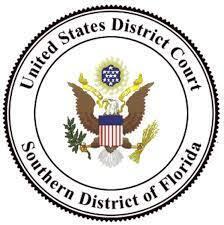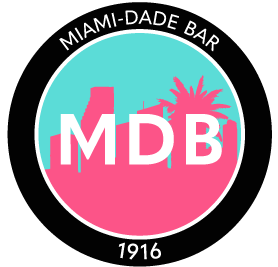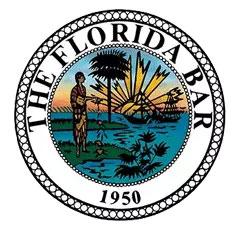Miami Adoption Lawyers
Miami Family Law Attorneys Guiding You Through the Adoption Process
Embarking on the journey of adoption is an incredibly emotional and rewarding experience. For prospective parents in Miami, Florida, this journey holds unique challenges and opportunities. Family law plays a critical role in adoption matters. Whether you are considering adopting a child or placing a child for adoption, seeking the assistance of a Miami family law attorney is a wise choice.
Speak with a Miami adoption attorney from Miami Family Law Group, PLLC today. Call us at 305-520-7874.
Adoption is governed by both state and federal laws to ensure the best interests of the child. Prospective parents must familiarize themselves with these laws to navigate the adoption process smoothly. Seeking the advice and guidance of a knowledgeable Miami family law attorney who has experience with adoption can play a pivotal role in ensuring compliance and expediting the process.
Miami, known for its vibrant culture and beautiful beaches, is also home to a complex legal system when it comes to adoption. The legal landscape in Miami is shaped by various statutes, regulations, and court decisions that aim to protect the rights of both the child and the prospective parents.
Different Types of Adoption
One of the key aspects of the adoption process in Miami is understanding the different types of adoptions available. These include agency adoptions, independent adoptions, and international adoptions. Each type has its own set of legal requirements and procedures that must be followed. These include:
- Agency adoptions: This type of adoption involves working with a licensed adoption agency, which acts as an intermediary between the birth parents and the prospective adoptive parents. These agencies are regulated by both state and federal laws to ensure ethical practices and protect the well-being of the child. Prospective parents must undergo a rigorous screening process, including background checks and home studies, to ensure they are suitable to adopt a child.
- Independent adoptions: These cases involve direct communication and agreement between the birth parents and the prospective adoptive parents, without the involvement of an agency. While this type of adoption can provide more flexibility and control over the process, it also requires careful attention to legal requirements to protect the rights of all parties involved.
- International adoptions: As the name suggests, these cases involve adopting a child from another country. These adoptions require compliance with both U.S. immigration laws and the laws of the child's home country. Prospective parents must navigate the complexities of international adoption regulations, including obtaining the necessary visas and completing the required paperwork.
Regardless of the type of adoption, the legal process in Miami involves a series of steps that must be followed. These steps typically include filing an adoption petition with the court, attending adoption hearings, and obtaining the necessary consents and relinquishments from the birth parents. It is essential to have a skilled family law attorney by your side to guide you through each step and ensure compliance with all legal requirements.
Legal Landscape Of Adoption
Furthermore, it is important to note that the legal landscape surrounding adoption is constantly evolving. Changes in legislation and court decisions can have a significant impact on the adoption process. Staying informed about these changes and seeking legal advice from professionals who practice adoption law can help prospective parents stay ahead of any legal challenges that may arise.
Understanding the legal landscape of adoption in Miami is crucial for prospective parents embarking on the adoption journey. With the guidance of a knowledgeable family law attorney, navigating the complex legal requirements and procedures can be made easier, ensuring a smoother and more successful adoption process.
What You Should Know About Adoption in Florida
If you are considering adoption, you are probably filled with a wide range of emotions — joy, excitement, and love, along with challenging emotions like stress or confusion. Working with a qualified adoption attorney is an excellent way to navigate this process seamlessly and professionally.
Adoption is a legal process that creates a parent-child relationship, and this process can be drawn-out and complicated. In Florida, an adult individual or adult spouses can be eligible to adopt in Florida if they pass several steps for approval.
Adoptive parents must go through a lengthy set of screenings and mandatory trainings to be deemed ready and fit for adoption. Additionally, adoption requires legal paperwork and processes many adoptive parents find complicated and confusing.
Working with an experienced family law attorney is essential to navigating this process effectively. Contact Miami Family Law Group, PLLC to schedule a strategy session.
What Are the Adoption Procedures in Florida?
The Florida courts require adults looking to adopt to go through extensive procedures to ensure their eligibility and preparedness to be parents.
First, adopters must attend a two-hour presentation followed by an in-depth training course. This course assesses the adopters' skills and informs them about issues and procedures in the adoption process.
Next, the adopter must undergo a home study and multiple background checks to ensure that they can provide a stable, safe home for the adoptee. The home study phase is very in-depth, and it includes not only the submission of personal and professional references, but also inquiries into finances, motivations for adopting, parenting strategy, and related issues. After gaining approval, someone who has completed these steps can begin searching for an adoptive child.
If a parent willingly gives up their child for adoption, they have a period ranging between 48 and 72 hours after signing the adoption paperwork to change their mind, depending on the child's age. They must give consent in front of a notary. After this waiting period, the only way to overturn the adoption is if a judge finds that the biological parent signed the consent under duress or fraud.
Who May Adopt or Be Adopted?
Any unmarried adult may adopt in Florida. If a married person wants to adopt, their spouse must also join in the decision and the adoption process unless the spouse is the biological parent or they receive an exemption. A Florida resident must have lived in Florida for at least 90 days before they can complete an adoption in the state.
Additionally, any person, including both minors and adults, is eligible for adoption. However, adoption is much more common among minors. In Florida, children 12 years and older are required to give their consent before proceeding with an adoption.
Florida protects the rights of gay and lesbian individuals and physically disabled people to adopt.
The Vital Role of Family Law in Adoption Matters
The role of family law in adoption matters is crucial, as it provides the legal framework and safeguards necessary to ensure the best interests of all parties involved in the adoption process. Family law serves as the cornerstone for facilitating and regulating adoptions, and it encompasses various aspects that play a vital role in adoption proceedings:
- Legal requirements: Family law sets forth the legal requirements and procedures for adoption, ensuring that all adoptions are conducted in compliance with the law. This includes the process for terminating parental rights, obtaining consent from birth parents, and completing necessary paperwork.
- Termination of parental rights: Family law governs the termination of parental rights, a critical step in the adoption process. This ensures that birth parents no longer have legal responsibilities or rights regarding the child once the adoption is finalized.
- Consent and relinquishment: Family law outlines the rules and regulations for obtaining valid consent or relinquishment from birth parents. It defines the circumstances under which consent can be given and the processes for revocation.
- Placement and adoption agencies: Family law governs the role and responsibilities of adoption agencies, ensuring that they operate within legal parameters and adhere to ethical standards when facilitating adoptions.
- Adoptive parent qualifications: Family law specifies the qualifications and requirements for prospective adoptive parents, including age, marital status, criminal background checks, and home studies. These requirements aim to safeguard the best interests of the child.
- Court approval: Adoption matters are typically subject to court oversight. Family law courts play a pivotal role in reviewing adoption petitions, conducting hearings, and granting final approval for adoptions to ensure that they meet all legal requirements.
- Confidentiality and privacy: Family law often includes provisions to protect the privacy and confidentiality of all parties involved in adoption, including birth parents, adoptive parents, and the adopted child.
- Post-adoption matters: Family law continues to be relevant even after an adoption is finalized. It addresses issues such as name changes, inheritance rights, and access to adoption records, providing ongoing legal support.
- Dispute resolution: In cases where disputes or challenges arise during or after the adoption process, family law provides mechanisms for resolving these issues through legal procedures and court intervention.
- Access to records: Family law establishes rules regarding access to adoption records, allowing adopted individuals, birth parents, and adoptive parents to obtain necessary information when appropriate and in accordance with legal guidelines.
Family law is the cornerstone of adoption matters, providing the legal framework, regulations, and protections necessary to ensure that adoptions are conducted in the best interests of all parties involved—birth parents, adoptive parents, and adopted children. It is through family law that the rights and responsibilities of all individuals are carefully balanced to create stable and loving adoptive families while preserving the legal rights and privacy of all parties.
Choosing the Right Family Law Attorney in Miami
Choosing the right attorney is crucial for prospective parents embarking on an adoption journey. It is essential to find an attorney who practices family law and has extensive experience in adoption matters. A knowledgeable Miami family law attorney can provide the necessary support and guidance throughout the entire process, making the adoption journey less daunting and more manageable.
Family law plays a vital role in adoption matters by providing guidance, protecting the rights of the child and birth parents, assisting with consent processes, and offering legal representation during court proceedings. The knowledge and experience of family law attorneys can be invaluable in ensuring a successful and legally sound adoption journey.
Types of Adoption in Miami: From Open to Closed
Miami, a vibrant city known for its diverse culture and warm climate, offers a multitude of options when it comes to adoption. The city's rich tapestry of communities and resources provides a supportive environment for both birth parents and adoptive families. There are various types of adoption available in Miami, each with its own unique dynamics and considerations.
Open Adoption: Embracing Connections
One of the most prevalent types of adoption in Miami is open adoption. This arrangement allows birth parents and adoptive families to maintain a level of contact and connection throughout the child's life. It is a beautiful way to create an extended family, where the child can grow up knowing their biological roots while also benefiting from the love and support of their adoptive family.
In an open adoption, the level of contact can vary depending on the preferences and comfort levels of all parties involved. Some birth parents and adoptive families choose to have regular visits, while others may opt for phone calls, emails, or social media interactions. This ongoing connection can provide a sense of belonging and identity for the child, as they grow up knowing that they have a network of people who care about them.
Open adoption also allows for the sharing of important information and medical history between birth parents and adoptive families. This transparency ensures that the child's well-being is prioritized, as any potential genetic or hereditary concerns can be addressed and managed effectively.
Closed Adoption: Privacy and Boundaries
On the other end of the spectrum, closed adoption offers a higher level of privacy and limited contact between birth parents and adoptive families. This type of adoption was more common in the past but is still an option for those who prefer a more discreet arrangement.
In a closed adoption, identifying information about the birth parents is typically withheld from the adoptive family, and vice versa. This means that there is little to no direct contact between the parties involved. While this may seem restrictive, closed adoption can provide a sense of closure and allow both birth parents and adoptive families to move forward with their lives independently.
However, it is important to note that closed adoption does not mean complete secrecy. In most cases, non-identifying information, such as medical history and background information, is still shared to ensure the child's well-being. Additionally, in some instances, closed adoptions can be opened later in the child's life if all parties involved agree to it.
Semi-Open Adoption: Finding a Middle Ground
For those who desire a balance between open and closed adoption, semi-open adoption can be a suitable option. This type of adoption allows for some level of communication and contact between birth parents and adoptive families, while still maintaining boundaries and privacy.
In a semi-open adoption plan, communication can take place through letters, emails, or mediated visits. This allows for updates on the child's well-being and development, while still respecting the wishes and comfort levels of all parties involved. It provides an opportunity for the child to have a glimpse into their biological heritage while growing up in a loving and supportive adoptive family.
Choosing the Right Adoption Arrangement
When considering adoption in Miami, it is crucial for prospective parents to carefully evaluate their own needs, preferences, and capabilities. Each type of adoption comes with its own set of dynamics and considerations, and what works for one family may not work for another.
It is recommended that prospective parents seek guidance from adoption professionals, such as social workers or adoption agencies, who can provide valuable insights and support throughout adoption finalization and the decision-making process. These professionals can help navigate the legal and emotional aspects of adoption, ensuring that the chosen arrangement is in the best interest of the child.
Miami offers a range of adoption options, from open to closed, allowing birth parents and adoptive families to find the arrangement that aligns with their values and desires. Whether embracing connections through open adoption, prioritizing privacy with closed adoption, or finding a middle ground with semi-open adoption, Miami's adoption landscape is diverse and accommodating. The journey of adoption is a deeply personal one, and with the right resources and support, prospective parents can make an informed decision that will shape the lives of all involved.
Choosing an Adoption Agency or Attorney in Miami
One of the most crucial decisions prospective parents will make on their adoption journey is selecting the right adoption agency or attorney. Miami hosts a wide range of law firms that practice adoption law. When making this decision, consider factors such as the agency's or attorney's track record, credentials, communication style, and availability of post-adoption support. Meeting with multiple options and asking relevant questions can help you find the perfect partner for your adoption journey.
Home Studies and Background Checks: The Adoption Evaluation
A home study is a standard part of the adoption process in Miami. This evaluation ensures that prospective adoptive parents meet the necessary requirements while safeguarding the best interests of the child. During the home study, a licensed social worker visits the prospective parents' home, conducts interviews, and reviews documentation. Background checks, including criminal and child abuse checks, are also performed. It is important to approach the home study with an open mind, as it is an opportunity for growth and learning.
Birth Parent Rights and Consent in Miami Adoptions
Birth parents' rights and consent are central pillars in adoption proceedings. In Miami, birth parents must provide informed consent before the adoption process can proceed. Understanding the intricacies of birth parent rights, including the timeframe for revoking consent, can help prospective parents approach the process with empathy and respect. Working with an experienced Miami family law attorney can ensure all necessary consents and legal requirements are met to avoid any potential complications down the road.
The Adoption Petition and Court Proceedings
Once all the necessary documentation and consents are obtained, prospective parents must file an adoption petition with the court. This marks the formal beginning of the legal process. Court proceedings generally involve a hearing where the judge, case worker, and any relevant parties review the adoption case and ask questions. While court proceedings can be nerve-wracking, having the support and guidance of a skilled adoption attorney can help ease the process, ensuring that all legal requirements are met.
International Adoption: Bringing the World to Miami Families
Miami is a cultural melting pot, and international adoption allows families to bring the world's diversity into their homes. International adoption in Miami involves navigating not only U.S. adoption laws but also the laws and regulations of the child's birth country. This process can be complex and time-consuming. Engaging the services of an adoption agency experienced in international adoption can provide invaluable support and assistance when navigating the unique challenges of adopting a child from another country.
Stepparent Adoption: Blending Families in Miami
Stepparent adoption is a beautiful way to solidify bonds and create a legal relationship within blended families. In Miami, stepparent adoption requires the consent of the biological parent and may involve terminating the biological parent's rights. This process can bring about a significant emotional and legal transformation for both the child and the new stepparent. Working with a compassionate and experienced adoption attorney can help streamline the legal process and ensure a smooth transition into the new family structure.
Relative and Grandparent Adoption: Keeping Kinship Strong
When family circumstances change, relative and grandparent adoption can provide stability and support for children within their extended families. In these cases, biological parents may be unable to care for their children due to various factors. Relative and grandparent adoption allows family members to step in and provide a loving and stable environment for the child. Adoption agencies and attorneys practicing family law can guide relatives or grandparents through the process, helping to navigate any legal complexities that may arise.
Foster Care Adoption: Providing Loving Homes in Miami
Foster care adoption plays a vital role in Miami's adoption landscape. Thousands of children in Miami are in need of loving homes, and foster care adoption offers a path to permanency for these children. Prospective parents who wish to adopt from foster care must first become licensed foster parents. Working with local foster care agencies, attending required training, and meeting licensing requirements are necessary steps in the adoption journey. Foster care adoption can be a rewarding choice, but it is essential to approach it with realistic expectations and an understanding of the unique challenges that may arise.
The Emotional Rollercoaster of Adoption in Miami
Embarking on the adoption journey can be an emotional rollercoaster, filled with excitement, anticipation, and occasionally, moments of despair. It is essential for prospective parents to acknowledge and embrace the full spectrum of emotions they may experience, seeking support from loved ones, support groups, or professional counseling when needed. Understanding that the adoption journey is unique to each individual and family can help make it a more fulfilling and transformative experience.
Post-Adoption Services and Support
Adoption is a lifelong journey, and post-adoption services and support play a vital role in ensuring the well-being of both the child and the adoptive family. Miami offers a range of post-adoption services, including counseling, support groups, educational resources, and access to community networks. Engaging in these services can help families navigate any challenges that may arise, foster healthy attachments, and create a supportive network of adoptive families.
Legal Assistance for Your Miami Adoption Journey
Throughout the adoption process, having the right legal support is integral to a successful and smooth journey. Working with a skilled Miami adoption attorney can provide invaluable guidance, support, and peace of mind. They can help navigate the legal complexities, ensure adherence to all necessary laws and regulations, and advocate for the best interests of both the child and the prospective parents. Finding an adoption attorney who understands the intricacies of adoption law in Miami is an essential step on your adoption journey.
Adoption FAQs
Answer: During a home study for adoptions in Florida, prospective parents can expect a comprehensive evaluation of their household and family dynamics. The home study will evaluate the family's readiness to adopt and ensure that they are capable of providing a safe environment for the child. A social worker will visit the parents' home to ensure that they have enough space for the child or children and will be able to provide a safe, healthy, supportive environment. Interviews and background checks will be conducted to ensure that the parents are ready, willing, and capable of providing for an adoptive child. The social worker may also provide education on adoption issues and parenting strategies.
Consult With a Miami Adoption Lawyer
Embarking on the journey of adoption in Miami offers a unique and fulfilling path to expanding your family. Understanding the legal landscape, exploring the various types of adoption available, and seeking the right support and guidance are essential steps in ensuring a positive experience. By staying informed and engaging the services of experienced adoption professionals, you can navigate the adoption journey confidently and provide a loving and secure home for a child in need.
Navigating the legal complexities, requirements, and emotional aspects of adoption can be overwhelming, but a Miami adoption attorney from Miami Family Law Group, PLLC can provide crucial guidance and support. From ensuring that all legal processes are followed to representing your interests in court and helping you build your forever family, we can serve as a beacon of hope and a source of comfort. With the assistance of an adoption attorney from our family law law firm, your personal journey towards expanding your family becomes not just legally sound, but also filled with the promise of a brighter future for you and your new loved one.
Contact Miami Family Law Group, PLLC at 305-520-7874 to speak with a Miami family law attorney today.
Contact Miami Family Law Group, PLLC
Our attorneys are ready to help address your legal needs. Schedule an appointment by calling 305-520-7874 or contacting us online.










